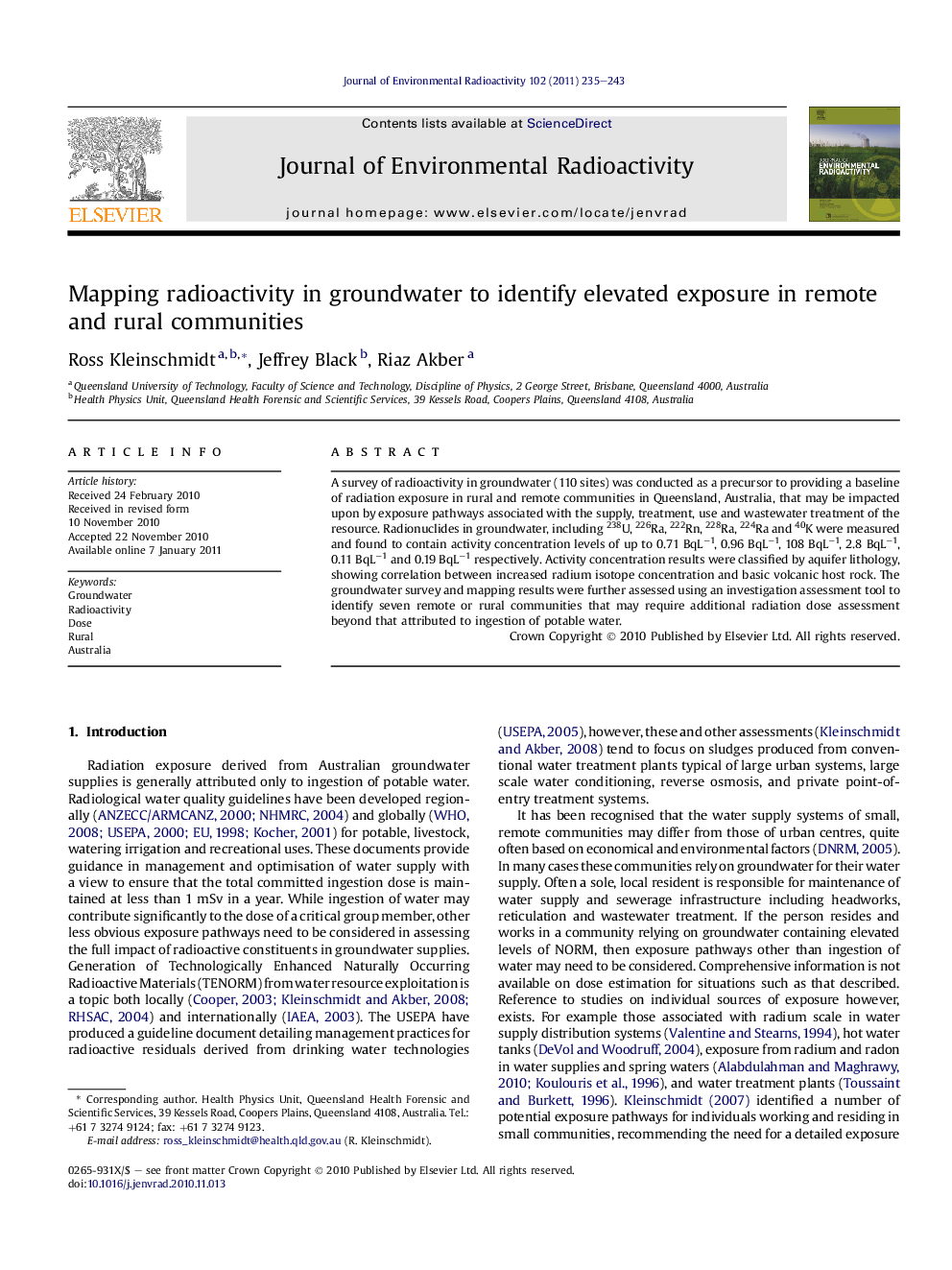| کد مقاله | کد نشریه | سال انتشار | مقاله انگلیسی | نسخه تمام متن |
|---|---|---|---|---|
| 1738800 | 1016815 | 2011 | 9 صفحه PDF | دانلود رایگان |

A survey of radioactivity in groundwater (110 sites) was conducted as a precursor to providing a baseline of radiation exposure in rural and remote communities in Queensland, Australia, that may be impacted upon by exposure pathways associated with the supply, treatment, use and wastewater treatment of the resource. Radionuclides in groundwater, including 238U, 226Ra, 222Rn, 228Ra, 224Ra and 40K were measured and found to contain activity concentration levels of up to 0.71 BqL−1, 0.96 BqL−1, 108 BqL−1, 2.8 BqL−1, 0.11 BqL−1 and 0.19 BqL−1 respectively. Activity concentration results were classified by aquifer lithology, showing correlation between increased radium isotope concentration and basic volcanic host rock. The groundwater survey and mapping results were further assessed using an investigation assessment tool to identify seven remote or rural communities that may require additional radiation dose assessment beyond that attributed to ingestion of potable water.
Research highlights
► We studied the concentration of naturally occurring radioactivity in groundwater in Queensland, Australia.
► Groundwater radioactivity concentrations were classified by aquifer type, location and magnitude.
► Radioactivity concentration in groundwater was used to develop a tool to determine the potential for elevated radiation exposure to rural and remote communities, based on a case study of a reference site.
► Of 110 groundwater bores tested, seven were assessed as requiring further community dose assessment.
Journal: Journal of Environmental Radioactivity - Volume 102, Issue 3, March 2011, Pages 235–243